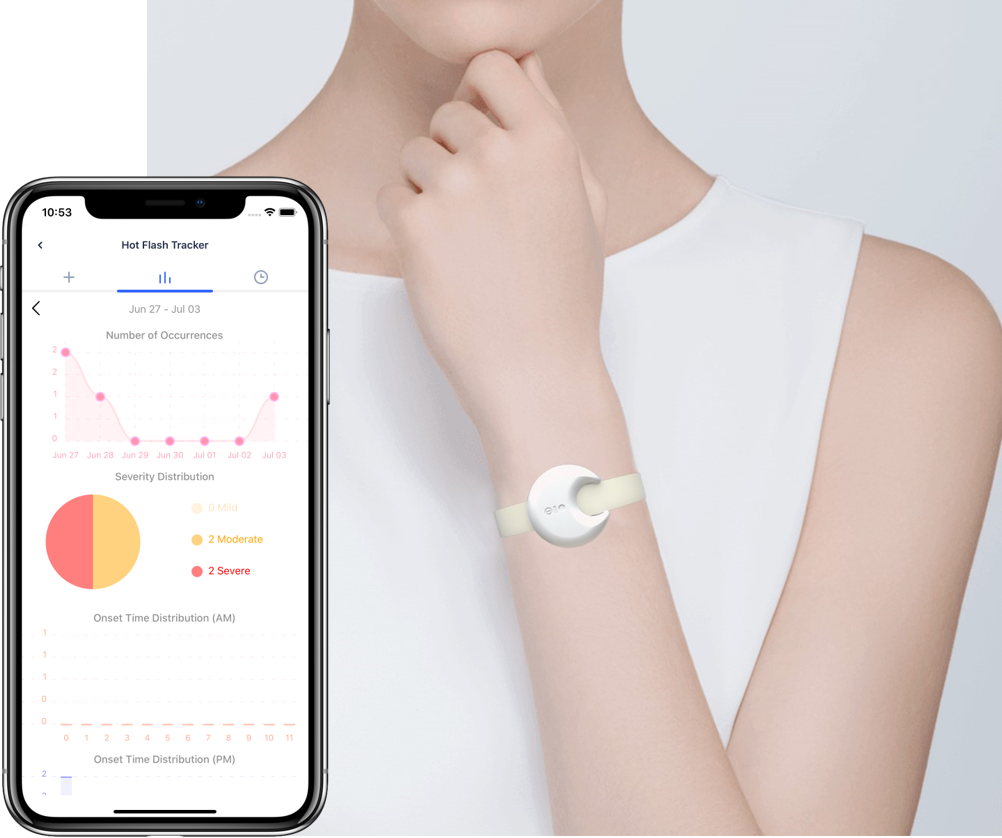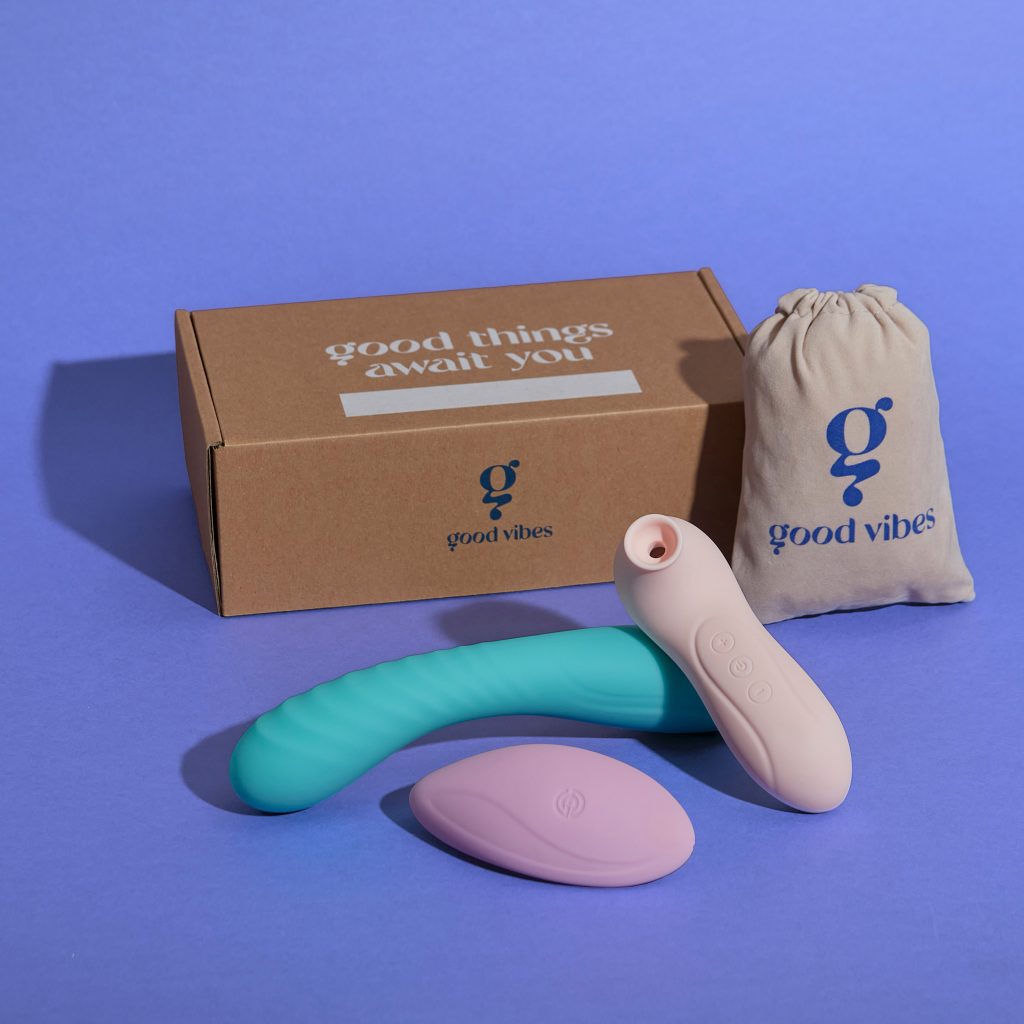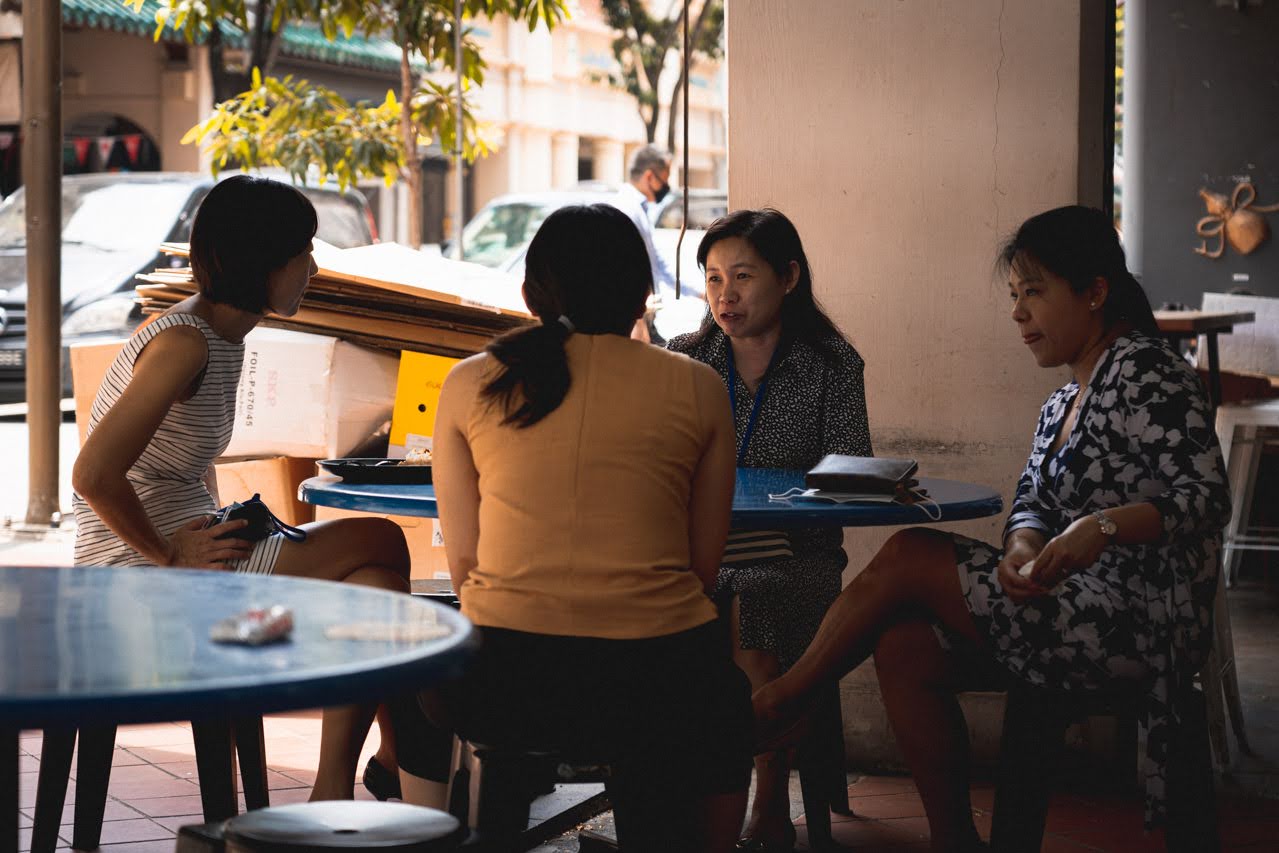Top Image: Zachary Tang/RICE File Photo
“I was wrongly diagnosed,” a female friend once told me.
28-year-old social media specialist Marissa (not her real name) was twenty-one when she started feeling out of sorts. With three months of hot flashes, night sweats, low spirits, and no period in sight, she knew she needed medical attention.
ADVERTISEMENT
Her diagnosis? Premature ovarian insufficiency (POI). She was given oral contraceptive treatment, followed by bad news described as “a crushing blow”.
“The doctor told me that I wouldn’t be able to conceive,” she shares.
For five years, Marissa was convinced that she was infertile until her instincts alerted something amiss. Sure, her periods were irregular, but her body felt different this time. “The idea of being pregnant never came to mind despite having all the symptoms,” she recalls. “So I was shell-shocked to see two lines on the pregnancy tests.”
She tested twice, thrice and eventually six times, and the results were all positive. Call it a miracle, but sceptics would claim misdiagnosis on the doctor’s part – something that is not uncommon, especially with women’s health.
Marissa eventually had an abortion as she felt it wasn’t the right time. With so many questions about her previous diagnosis, pregnancy and dealing with abortion, she turned to Google in search of answers. That’s when she came across the world of femtech.
What is femtech?
The term “femtech” isn’t a new buzzword. Coined in 2016 by Ida Tin, the founder of period and ovulation tracker Clue, it refers to software and technology geared towards women’s biological needs.
Lindsay Davis, the co-founder of FemTech Association of Asia (FAA), also explains that the term encourages “a [female] founder to be taken seriously, [especially] in a boardroom of [tech] investors who are mostly male, as well as in a fair few countries where women’s health is often disregarded or at least, not emphasised as a priority.”
“This is why femtech has to be created – for people, especially women, to take notice and realise that their health and wellbeing matters at every stage of life.”
Despite accounting for half of the world’s population, studies reveal that women are more prone than men to be misdiagnosed. This is partly due to a lack of research on women’s health, and the fact that most healthcare systems in the world are designed by men based on the experiences of, well, men. And when it comes to health, the one-size-fits-all approach is wholly inadequate.
Ergo, in the last few years, mothers of femtech around the world have been taking matters into their own hands by introducing tech solutions that address the medical mysteries of the female body.
Femtech’s meteoric rise from niche to mainstream has innovative solutions for period pain, fertility problems, menopausal symptoms and more coming thick and fast, serving thousands of women worldwide. This harmonious synergy between healthcare and technology has become a necessary tool in making lives less complicated, which goes to show that advancing women’s health is relevant, beneficial, and needed.
The numbers speak for itself
Firstly, let’s talk data: Statista reported that the global market for femtech was valued at some US$22 billion in 2020 and forecasted to increase over US$60 billion by 2027 – a testament to its high demand.
Conscious of the power of femtech, Lindsay Davis and Francesca Geary-Stingl founded the FAA to connect like-minded business leaders in Singapore, Japan, Malaysia, the Philippines and Thailand with the core focus of improving women’s health through tech solutions such as period trackers, pregnancy apps, sexual wellness products and non-invasive wearables.
Referring to Fermata Singapore’s Femtech Market Map for Southeast Asia 2021, the FAA founders highlight the huge potential for growth in Asia despite hosting fewer femtech businesses with a lower market penetration than its Western counterparts. Considering how women’s health is still stigmatised in many parts of Asia, the market boost could potentially break cultural taboos and increase visibility on women’s health issues.
In Singapore, both Lindsay and Francesca point out a consumer trend among Millennials and Gen Zs who have shown interest in owning one’s health and being more self-aware. However, there is scarce activity in menopause care, despite the country being reported to have one of the lowest fertility rates and one of the most rapidly ageing populations in the world.
Cue EloCare, which offers a personalised health assistant tool in the form of an AI-powered wearable and mobile app for midlife women to track and manage menopausal symptoms and health conditions. It’s also an effective way to record and interpret the user’s body data, so both user and doctor can make more informed decisions.

“[Through research], it became clear to us that menopause is really underserved at the moment with almost no effective technology solution out there to help women and even clinicians holistically address this issue,” says Mabel Nguyen, co-founder of EloCare. “Menopause could impact women’s lives far more significantly than most people realise.”
ADVERTISEMENT
For others, the push to take action stems from their own struggle. Maria Wang-Faulkner co-founded Simone Health (formerly Fig Health) after facing hormonally driven postpartum challenges and after hearing of her close friends’ struggles with polycystic ovary syndrome (PCOS), endometriosis, or hypothyroidism.
“The more I learned about PCOS, the more I realised how pervasive, devastating, and grossly underserved it is,” Maria tells me. “For instance, in 2017, just 28 studies on PCOS were registered on ClinicalTrials.gov, compared with 4,632 for diabetes, even though PCOS is just as common. It’s no wonder we still don’t know what causes it or how to treat it.”
Her deep dive led her to help women understand the way their bodies function through Simone Health’s personalised, virtual PCOS management programme. It also offers evidence-based methods to help the body and mind feel better by making adjustments to diet, movement, and sleep while educating users on the importance of hormone health.
“Hormones are our body’s chemical messengers; our body makes and uses various hormones to function,” Maria emphasises. “For example, melatonin to sleep, insulin to regulate blood glucose levels, and progesterone, estrogen and more for reproductive health. If hormones are even slightly unbalanced, this can have far-ranging impacts on your health and lead to chronic symptoms and conditions like PCOS or diabetes.”
The real changes femtech bring
Despite half of the world’s population having a menstrual cycle, many are still in for a surprise whenever periods turn up unannounced each month. So it’s no wonder that many women are downloading period tracking apps to log in their symptoms and keep tabs on their monthly cycles.
For mum-of-two Nur Afiqah, the Period Calendar app has helped her accurately foresee her ovulation days and period patterns. “My period has always been regular. However, there have been a few times when it changes in a month or two since giving birth. Using the app helps me watch my cycles and their lengths,” she shares.
She also praises its easy-to-use features and valuable tips on relieving menstrual cramps, kegel exercises, and even skincare. Besides tracking her period patterns, she also uses it to predict the chances of pregnancy, allowing her to plan accordingly.
While apps are great for period tracking and baby-making (or not), some “lady issues” require something more tangible.
For years, 29-year-old Dhabitah Huda has endured intense period pains. “It gets so bad that usually on my second day, I’ll be in bed resting the whole day,” she shares. “I just become very weak and quiet, which is very unlike me.”
While period pain tablets might be a quick and easy solution, it’s not always the case for others.
Dhabitah realised that oral tablets weren’t cut out for her as she gained “so much weight.” This isn’t uncommon. Hormonal contraceptives contain both lab-made oestrogen and progesterone, which can cause water retention and an increase in appetite.
When it all seemed like an endless game of trial and error, Dhabitah visited the doctor and was diagnosed with endometriosis. However, as it was a mild case, the doctor didn’t suggest surgery, which can amount to something drastic like removing the entire uterus.
Without surgery, she was told she would have to live with the unbearable cramps for as long as she menstruates. Determined to find a solution, she joined a Facebook community where women with endometriosis share their experiences. “That was when I realised how serious this thing can get. Sadly, so many people are unaware of this because it’s a taboo topic to discuss openly.”
Soon she discovered Livia, a wearable that uses electronic micro-pulses to engage with the body’s natural pain defences. It also comes with different intensity levels so that the user can adjust accordingly – even going full-throttle when it gets unbearable.
“When my cramps get bad, I go on full blast, and the shock from the device soothes my pain throughout the whole day,” she says. “This allows me to go out for nice meals and run errands like any other day.”
“It’s the best investment I made [last] year, and I don’t regret it!”
Taboos

On the other side of reproductive health comes sexual wellness. Nonetheless, both areas contribute to healthy, balanced relationships with partners and even oneself.
In the name of helping women discover their true pleasures through innovative devices and positive sex education, Meryl Lim and Jacqueline Kee got the ball rolling with their sexual wellness start-ups: Good Vibes and Hedonist.
When talking about the idea behind Good Vibes, Meryl admits that it all started with her first discourse about the birds and the bees with her friends.
“The more we spoke about sex, the more I realised how seldom we spoke about it and how reliant I am on Google for answers,” Meryl tells me. “I started questioning why we tend to avoid this topic as a whole [when] sex is a part of human needs.”
Beyond sextech, the brands also encourage normalising carnal conversations and the art of female pleasure. Jacqueline expands on this: “sex toys have always been a conversation starter, but the bigger picture was always to create a safe community for people to talk about pleasure and be educated about sex positively without any shame or judgement.”
Also committed to eradicating the faux pas associated with intimates, TWO L(I)PS raised eyebrows in 2018 when it was launched to address the concerns of women about their lady bits, including the vulva. “The vulva is an important part of the body but is often overlooked and neglected as it is deemed embarrassing,” Cynthia Chua, founder of Spa Esprit Group, points out.
With the need to address this gap in the market, the brand began offering cutting-edge skin solutions that provide the privates with the TLC it deserves. “The TWO L(I)PS store is also a safe space where women can have conversations about the vulva without judgement and share any concerns they may have,” Cynthia adds. “We hope that women would feel less alone in their journey to self-care and self-love.”
Bringing people together
Since young, women are taught that anything less than physical perfection is shame-worthy. And with much stigma attached to topics around sex, periods, fertility and menopause, most women struggle in silence until it’s too late.
In the matter of Dhabitah’s period pain and Marissa’s fertility experiences, both women were expected to go about normally with their lives after their medical appointments. The reality is that there are no shortcut solutions, and without continuous support, such experiences can feel profoundly lonesome.
While communities of supportive women have always existed, even before the internet, femtech has further amplified women’s voices, allowing them to share their experiences with people from all walks of life and end shame around women’s health. And there’s no denying that this has helped thousands of women feel less isolated on their personal health journeys.
But that’s not to say we should ditch the doctors and rely more on peer information and remote advice. In fact, femtech should be seen as a complement to a healthcare professional’s advice as well as medical treatment. This alliance can help both patient and doctor with more accurate information about the conditions collected by the savvy tool.
Here in Asia, it’s empowering to see the FAA working closely with local and regional femtech businesses in bringing partnership collaborations and peer-to-peer support. “Many femtech founders in Asia face similar business and industry challenges and cultural nuances,” says Lindsay.
“With greater acceptance of the industry and value attributed, we hope to see increased funding of current femtech companies, more research covering women’s healthcare, and more businesses launching across Asia.”







